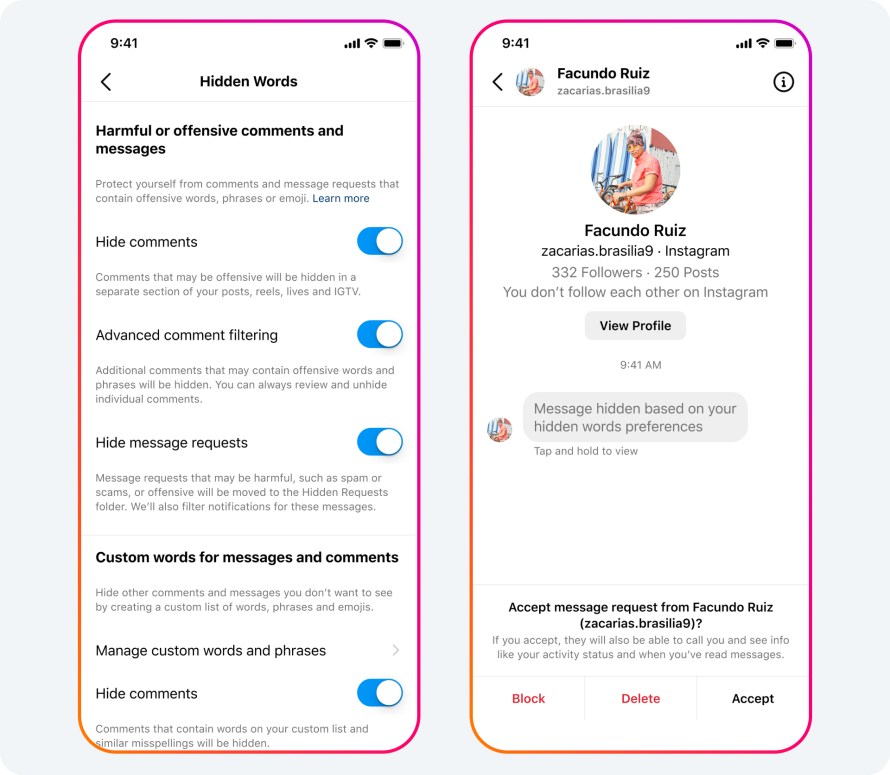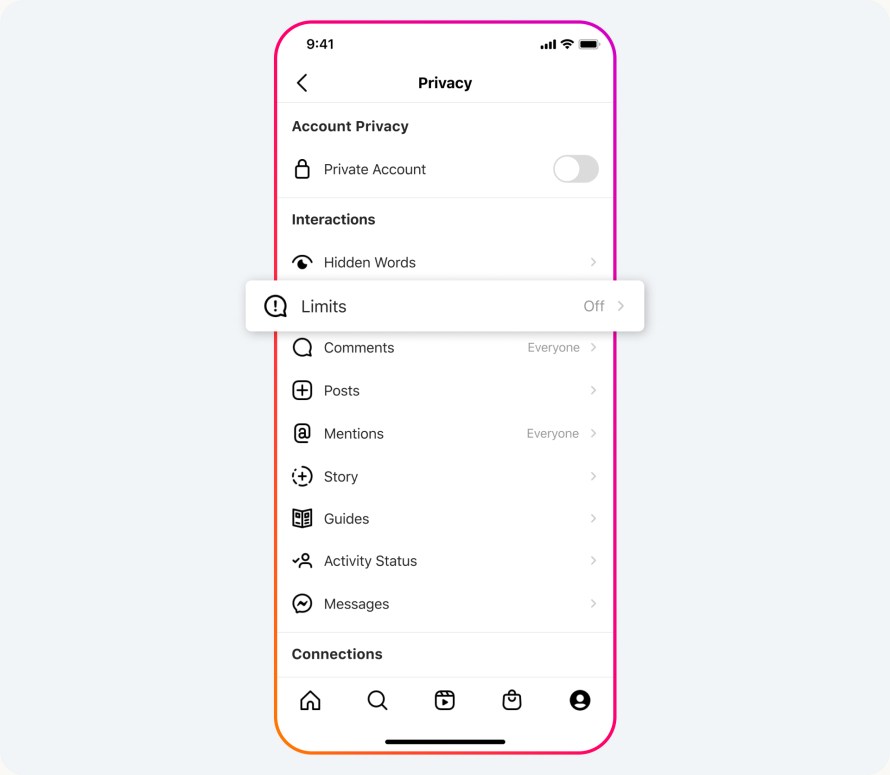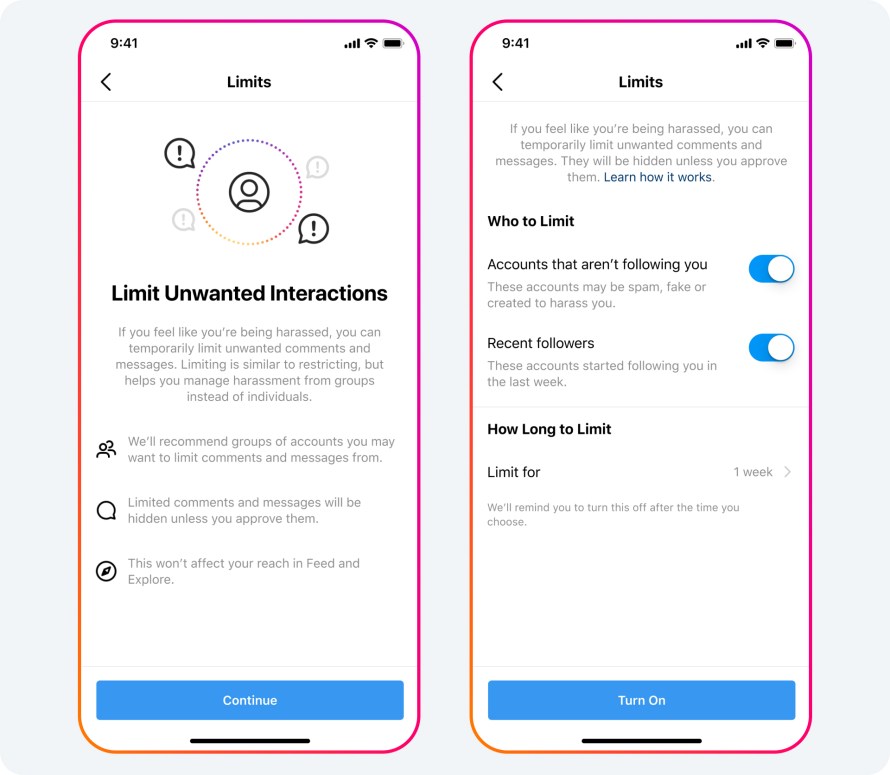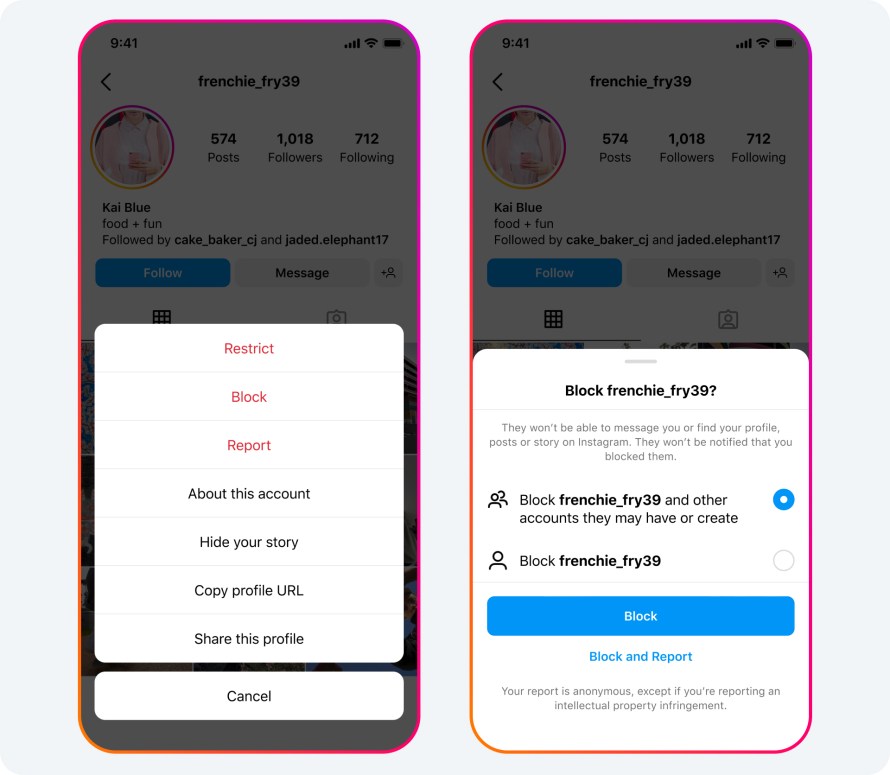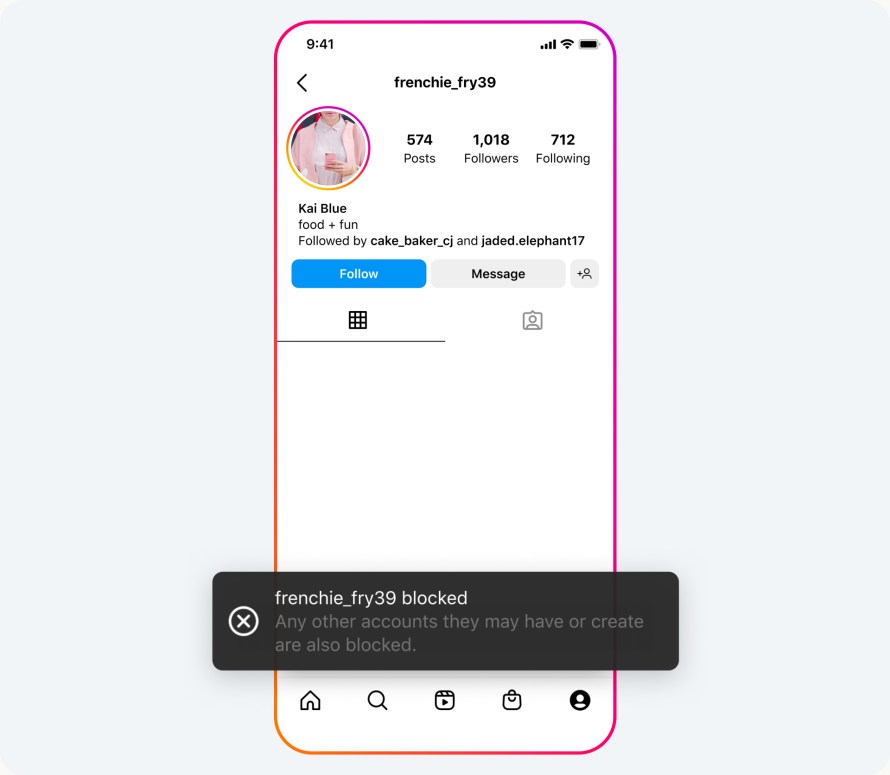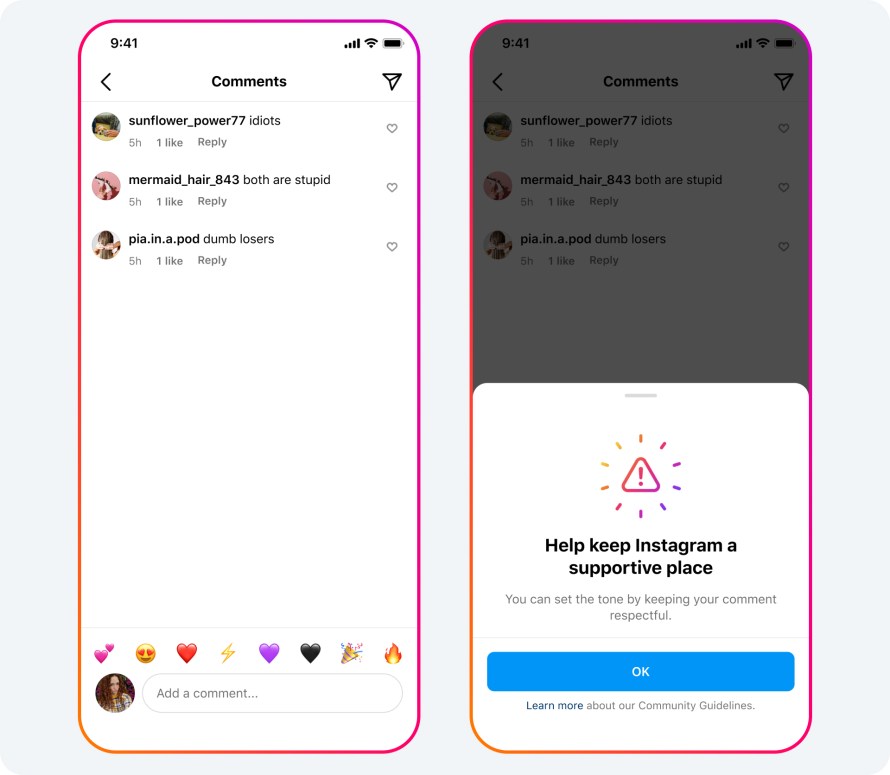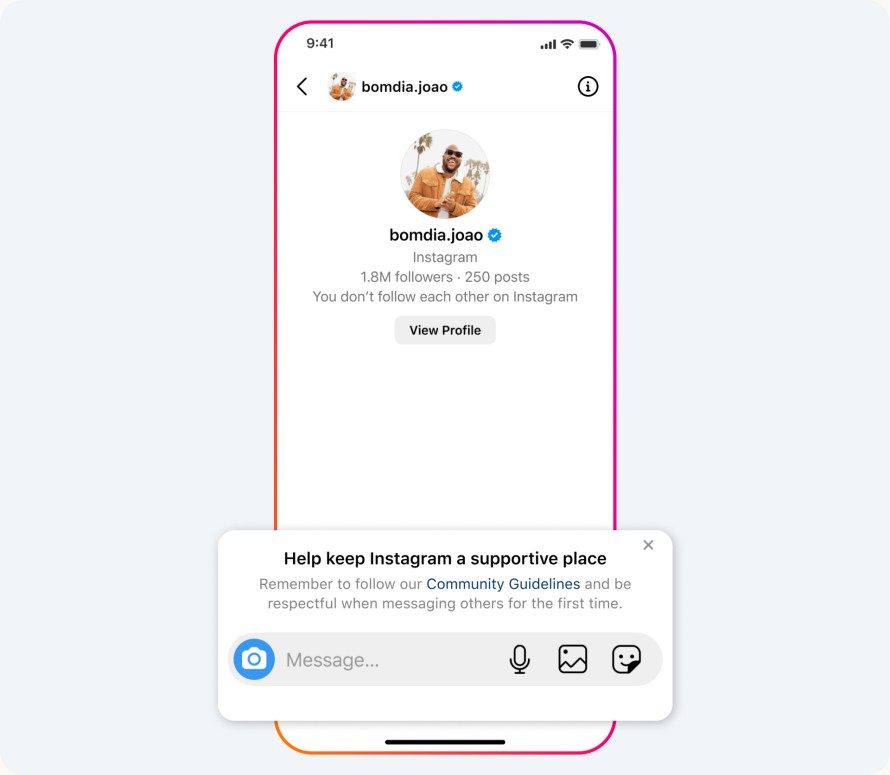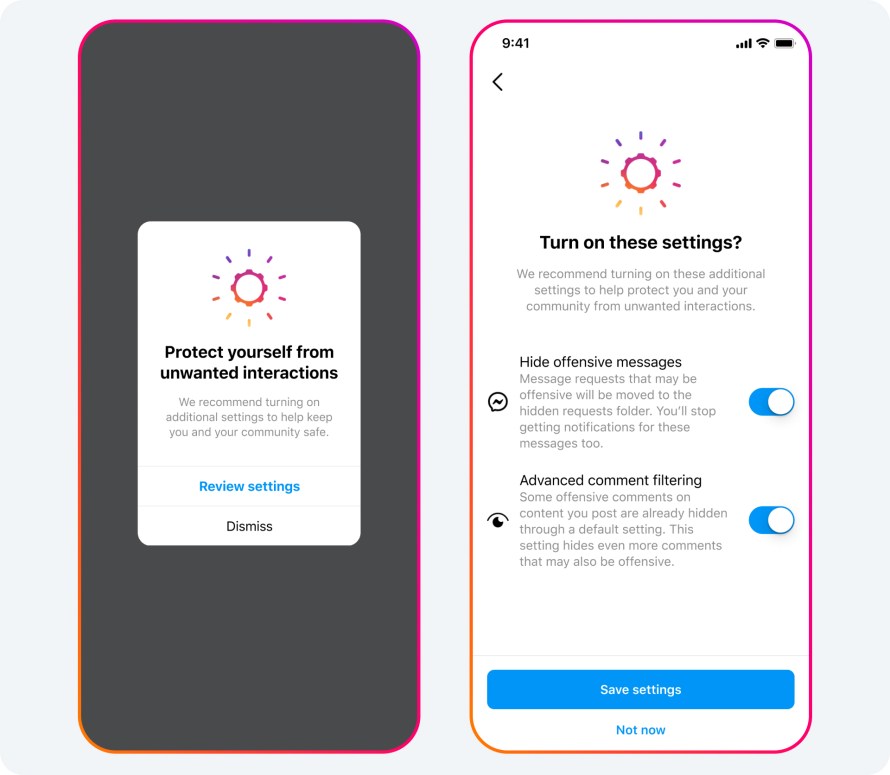Updated on July 18, 2023 at 12:00PM PT:
Over the next month, fans across the globe will use our apps to connect around the FIFA Women’s World Cup. In addition to the protections we put in place for the Men’s World Cup — including Hidden Words and Limits — today we’re highlighting additional policies and safety features that will help protect players and fans from abusive behavior on our apps.
Rules to Help Protect Women From Abuse
We developed many of our rules — like those against bullying and harassment, threats and hate speech — in consultation with women’s safety groups in order to address the types of harmful content that can disproportionately affect women. We remove and take action on a wide range of abusive content under these rules, from violent or dehumanizing attacks against women based on their sex or gender identity and threats of physical or sexual violence to attacks that use gendered or misogynistic language. While our bullying and harassment policies distinguish between public figures and private individuals to make sure we’re allowing legitimate discourse around those in the public eye, we expanded these policies in 2021 to give more protection to public figures, including footballers, who shouldn’t be subjected to degrading or sexualized attacks. We will remove content that breaks these rules during the tournament — as we do all year round.
Features to Help Keep Footballers Safe
Last month, we began testing new features on Instagram to better protect people from unwanted images and videos in DMs — something we know can disproportionately impact women, especially those in the public eye.
- Before being able to message someone who doesn’t follow them, people must now send an invite to get their permission to connect. People can only send one invite at a time and can’t send more until the recipient accepts the invitation to connect.
- We’ll limit these message request invites to text only, so people can’t send any photos, videos or voice messages, or make calls until the recipient has accepted the invite to chat. These changes mean people won’t receive unwanted photos, videos or other types of media from people they don’t follow.
Our goal is for everyone — including women footballers — to feel confident and in control when they open their DMs.
Educating Footballers and Partners About Our Safety Tools and Policies
Just as we did ahead of the Men’s World Cup last year, we partnered with FIFA in the lead up to the event to provide participating players, teams and associations around the world, as well as media partners and rights holders, with the latest information and training on our safety tools and policies. And we’re reminding participating footballers to check their safety tools with a prompt at the top of their Instagram Feed.
While we know no one thing will prevent or fix abusive behavior, we’re committed to continuing to develop tools to protect our community and help keep our apps safe for footballers and fans, so they can celebrate and support each other during FIFA’s Women’s World Cup and beyond.
Originally published on November 17, 2022 at 3:00AM PT:
Over the next month, football fans across the globe will use our apps to connect around the FIFA World Cup. While most will be rooting for the teams and players competing for the championship, unfortunately there will likely be some who want to be abusive towards others — just like we see offline. Before the competition kicks off, we’re sharing more details about our policies against abuse, and the range of tools we’ve developed to help keep footballers — and everyone else — safe.
Our Rules Against Abuse
We have clear rules against bullying, violent threats and hate speech — and we don’t want it on our apps. As well as responding to reports from our community, outside of private messages we also use technology to proactively look for content that might break these rules. Where our technology thinks a piece of content may be violating it will take action, whether that’s sending it to our teams for review or — if it’s really confident — deleting it automatically. Between April and June this year, we took action on more than 17 million pieces of hate speech on Facebook and Instagram, and found more than 90% of that before anyone reported it.
Features to Help Keep Footballers Safe
In response to feedback from our community, we’ve developed new features — and updated existing ones — to help footballers and fans alike stay safe on our apps and protect them from abuse.
People can turn direct message (DM) requests off completely on Instagram, meaning they won’t receive messages from anyone they don’t follow. They can also choose who can comment on their posts or turn off comments altogether, on a post-by-post basis. But some public figures have told us they don’t want to turn off DM requests completely, because they like hearing from fans and other members of their community. That’s why we developed Hidden Words.
When turned on, this feature automatically sends DM requests — including Story replies — containing offensive words, phrases and emojis to a hidden folder so you don’t have to see them. It also hides comments with these terms under your posts. Since launching Hidden Words last year, more than one in five people with more than 10,000 followers have turned it on. We’re also testing turning it on by default for people with creator accounts, which includes many footballers playing in the World Cup.
We launched Limits last year, which, when turned on, hides comments and DM requests from people who don’t follow you or who only followed you recently. Limits is particularly useful for public figures who experience sudden spikes of comments and DMs — after a football game, for example — as our research shows that most negativity towards them comes from non-followers or recent followers. When we detect that someone may be experiencing a rush of comments or DM requests, we’ll prompt them to turn on Limits.
Blocking is a quick and effective way to stop someone from interacting with you. Now when you block someone on Instagram, you can also block any other accounts they may already have, or may create in the future, making it even harder for them to contact you.
Encouraging More Supportive Behavior on Instagram
We’re also continuing to explore ways to prevent people from posting abusive content in the first place. We already use artificial intelligence to detect when someone is trying to post a comment that might be offensive, and warn them it may break our rules. In a given week, people edit or delete their comment 50% of the time after seeing these warnings. We also recently introduced new nudges that encourage people to pause and rethink before replying to a potentially offensive comment. These nudges are live now for people whose apps are set to English, Portuguese, Spanish, French, Chinese or Arabic.
When people send a DM request to a creator or public figure for the first time, we’ll remind them to be respectful, so they remember there’s a real person on the other side of their message.
Educating Footballers About Our Safety Tools and Policies
We regularly speak to football players, teams and associations around the world — including FIFA — to make sure they know about our latest safety policies and features, and we listen carefully to their feedback. We’re also working closely with teams competing in the World Cup to help their players turn on our safety tools — for example Hidden Words — and we’re reminding footballers in the tournament to check them with a prompt at the top of their Instagram Feed.
Working With Law Enforcement
We cooperate with law enforcement in their investigations and respond to valid legal requests for information in accordance with our terms of service and applicable law. As with all law enforcement requests, we’ll push back if they’re too broad, inconsistent with human rights or not legally valid.
While we know no one thing will fix abusive behavior, we’re committed to continuing to develop tools to protect our community, and to working closely with the football industry to help keep our apps a safe place for footballers and fans.

